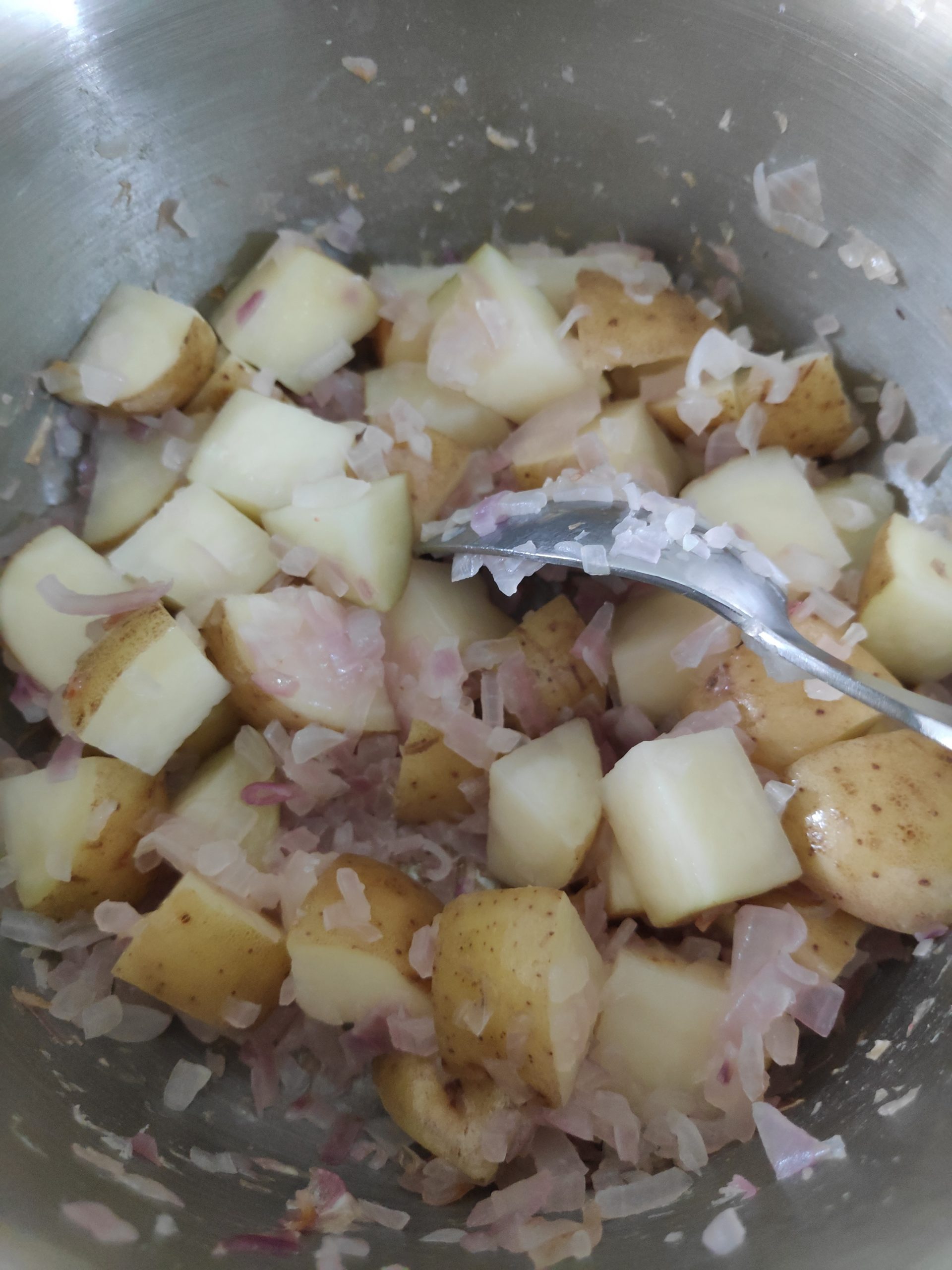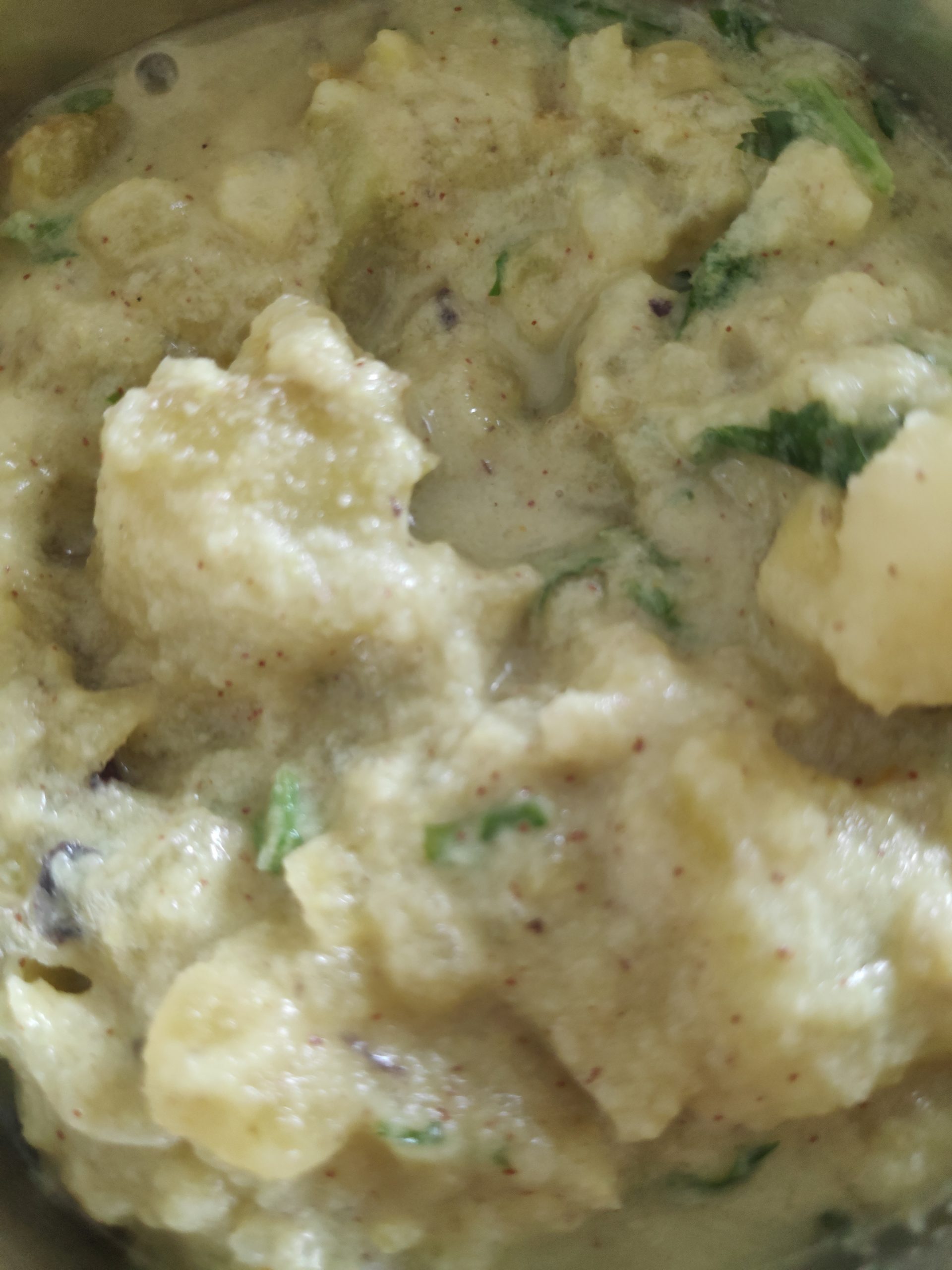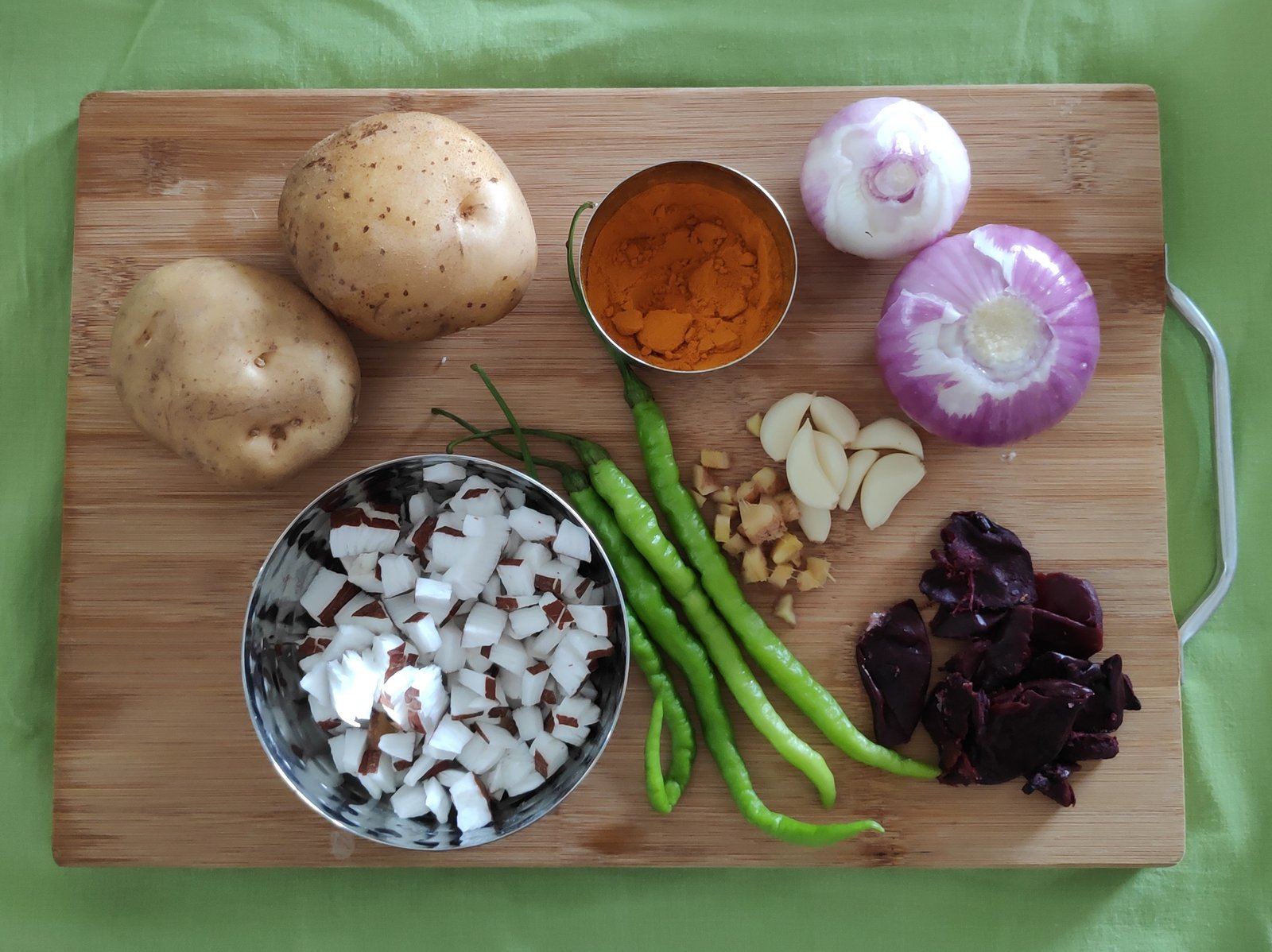Recipe Credit: Darshana Muzumdar
Serves 4-6 as part of an Indian meal
Everybody knows how to cook aaloo sabji and there are umpteen ways to cook potatoes, but this recipe is one of my favorites. This recipe is very easy to make in the whole plant based form and the freshly ground coconut masala gives it a delicious flavor. Traditionally this dish is served with pooris but it is equally great with rotis, bhakris, and rice.
The pictures in this recipe are of the oil-free WFPB version. ☺
Ingredients
- 250-300 gms potatoes (two large or three medium sized)
- 125-150 gms onions (two medium sized)
- ¼ coconut, grated or sliced/chopped into small pieces
- 4-5 green chillies (this will vary according to the variety of chilli used)
- 6-8 garlic cloves
- 1” piece of ginger
- ½ tsp turmeric powder
- 6 kokum rinds (or use lime juice)
- 1½ tbsp groundnut or coconut oil
- salt to taste (this dish requires a little more than usual because of the potatoes and coconut)
- ½ cup fresh coriander, chopped (optional)
Method
Wash, peel and cut the potatoes into 2-3 centimeter cubes. Chop the onions fine. Heat oil in a thick bottomed steel pot and sauté the onions on medium to low heat till golden brown. Add the chopped potato pieces, turmeric, 1 cup of water, salt, and cook till the potatoes are cooked really well. While the potatoes are cooking, grind together the coconut, green chillies, ginger, and garlic to a fine paste with enough water to cover the grated coconut or pieces. Add the kokum to the potatoes and continue cooking on a low flame. If you are using lime juice, add it in the end just before putting it in the serving dish. Add the ground masala to the potatoes and bring it to a boil. Add a little more water if necessary as the coconut gravy will thicken with time. Simmer for about two minutes. Turn off the heat add in the chopped coriander if using, and serve hot. This bhaji is traditionally served with puris, but tastes equally great with rotis, bhakris, or rice and dal.
For the Whole-Food Plant-Based (WFPB) version:
Use rock salt instead of refined salt.
Do not peel the potatoes. Chop them with the skin on.
Do not use oil. Put the chopped onion in a thick bottomed steel pot, add some salt and rest it for 5 to 10 minutes for the onions to sweat. Turn the heat on medium to low and sauté the onions till all the moisture has gone and the onions start becoming slightly brown. The onions should be soft and translucent before browning. If they aren’t soft, add a tablespoon of water at at time and cook till they become soft and translucent before browning them. Continue with the rest of the recipe as above.






Share this:
- Click to share on Facebook (Opens in new window)
- Click to share on WhatsApp (Opens in new window)
- Click to share on Twitter (Opens in new window)
- Click to share on Pinterest (Opens in new window)
- Click to share on LinkedIn (Opens in new window)
- Click to share on Skype (Opens in new window)
- Click to share on Reddit (Opens in new window)
- Click to share on Tumblr (Opens in new window)
- Click to share on Pocket (Opens in new window)
- Click to share on Telegram (Opens in new window)
- Click to print (Opens in new window)

